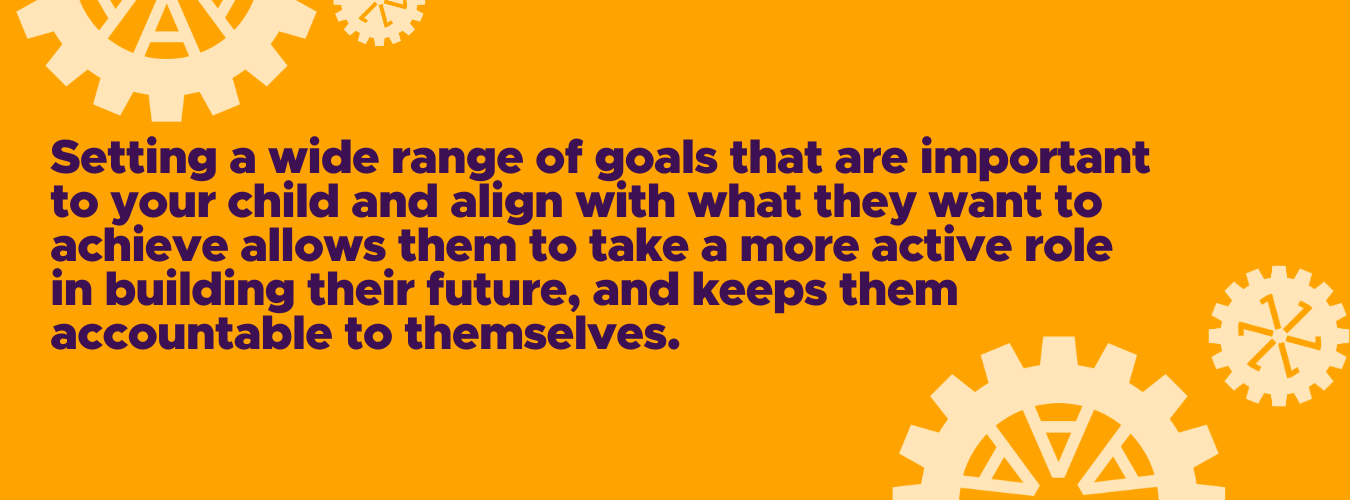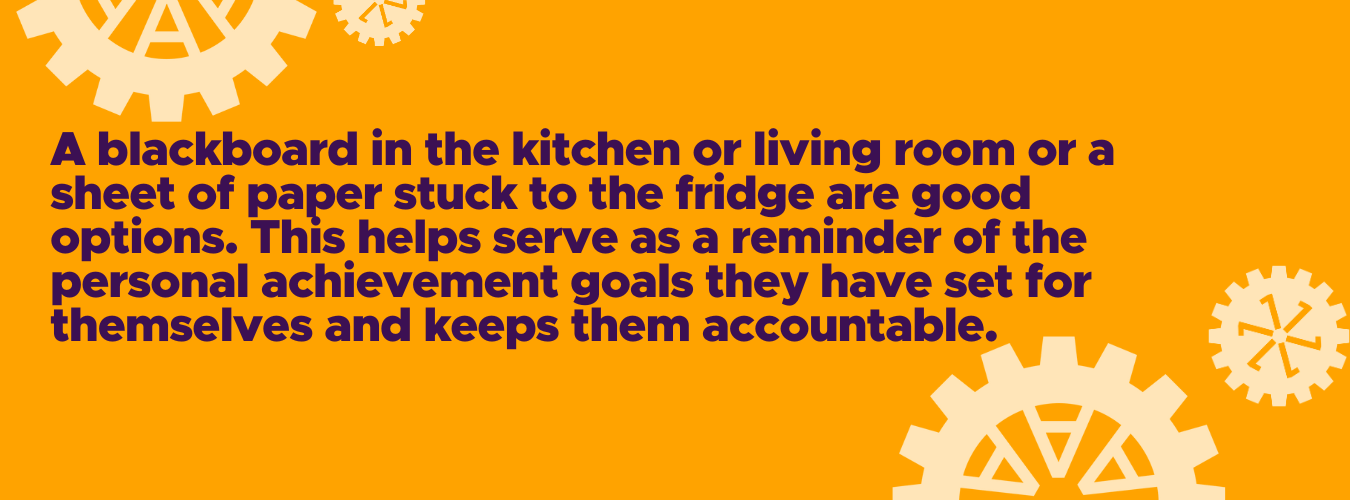Setting Goals for Children

“If we did all the things we are capable of, we would astound ourselves.”
—Thomas Edison
Setting goals is a crucial aspect of personal development and accomplishment, representing a fundamental skill to acquire early in life. Goals serve as powerful motivators, propelling us towards the realisation of our dreams and pushing us to surpass our expectations.
Teaching children the art of goal-setting contributes to the enhancement of their self-perception, the cultivation of their strengths, the identification of weaknesses, and the acquisition of visualisation techniques.
Furthermore, achieving set goals fosters confidence and serves as a tangible illustration of success for children to draw inspiration from. Explore the following insights to effectively guide your children in the process of setting and achieving goals.
1. Write clear and measurable goals
The sense of accomplishment that accompanies achieving a goal is truly invaluable. Achieving goals demands hard work, determination, and a well-thought-out plan, so this is precisely where the significance of goal setting becomes evident. Developing a plan provides a sense of direction but also assists children in clarifying their priorities and focusing on what truly matters to them.
Initiate the goal-setting process by helping your child articulate clear, measurable objectives. Collaborate with them to brainstorm what holds importance for the term or the school year. Once ideas are on paper, distil a specific goal and consider how progress will be measured.
Particularly with younger children, it's advisable to concentrate on a single goal in one aspect of their life rather than juggling multiple learning objectives simultaneously.
For beginners, it's beneficial for children to start with smaller learning goals. Achieving these smaller milestones fosters confidence and cultivates a positive attitude toward goal setting. A primary learning goal, for instance, could be advancing a reading level at school.
Once the goal is defined, establish a system for tracking progress, including measures for assessment, a target completion date, and scheduled progress check-ins. Consider incorporating a reward or celebration for reaching the goal to support positive reinforcement. An example could be, 'I will advance to the next grade level and reading group by the end of term four.'
Encourage your child to set a diverse range of goals that align with their aspirations. This approach not only empowers them to play an active role in shaping their future but also fosters accountability to themselves.

2. Create a specific action plan for goal setting
After establishing a set of goals, formulate a distinct action plan for each one. While each action plan will vary, most will involve consistent study or practice of a skill or activity.
For learning goals, an effective action plan should incorporate dedicated time for studying towards the goal. Using the reading level example, a practical goals plan for students might include:
- 30 minutes of independent reading each afternoon
- 15 minutes of reading with a parent before bedtime
- Reading a challenging book once per week
With a solid plan, these actions seamlessly integrate into the child's daily routine, transforming goals into ingrained habits. To address motivation challenges, consider documenting the daily tasks as part of a to-do list, allowing the child to mark off completed tasks as they progress.
3. Review and visualise own goals
Two pivotal factors in achieving goals involve consistent goal review and envisioning successful outcomes. When setting goals with your child, ensure that they are documented and placed in a location where they can encounter them daily.
Consider using a blackboard in the kitchen or living room, or affixing a sheet of paper to the fridge. This strategy serves as a tangible reminder of the personal achievement goals they have set, fostering a sense of accountability.
Visualisation is another powerful technique to aid children in reaching their goals. By mentally picturing themselves as having accomplished their objectives—whether it's making it onto a competitive sports team, advancing in class, improving results through tutoring, receiving a school award, or swimming the length of a pool—they not only begin to perceive the attainability of their goals but also maintain motivation and build confidence in their journey towards achievement.

4. Reflect on progress to see if they are on target
When you establish a goal with your child, incorporate regular progress check-ins as part of the process. These check-ins can take the form of weekly or monthly reviews, during which you sit down together to assess their progress and evaluate the execution of their action plan.
These regular check-ins serve a dual purpose. Firstly, they assist in gauging whether the child is on track with their goals and consistently working towards them. Secondly, they provide an opportunity to determine if any adjustments are needed in the action plan. Conducting these reviews regularly, not only keeps children accountable but also serves as a reminder of the purpose behind the goals they set in the first place.
5. Celebrate accomplishments
When a goal is successfully achieved, take the time to celebrate! Regardless of whether the goal is substantial or modest, celebrating the accomplishment is crucial. The celebration or reward chosen should align with the nature of the goal. If it was a long-term endeavour or a challenging stretch goal, recognise the achievement with something special.
Allocate time to savour the sense of accomplishment with your child before transitioning to a new goal that builds upon their previous achievements. Instructing children on how to set ambitious goals and stretch their abilities is fundamental to their overall success and confidence as they navigate the world.

The process of setting and tracking goals can not only be rewarding, but also transformative for children. It's essential to remember that everyone starts as a beginner in all the endeavours they pursue.
Embarking on the journey of setting challenging goals may seem daunting, but it is precisely through this process that we experience growth and mastery. Initiate the goal-setting process with your children, and consider setting goals alongside them to foster a collaborative approach.
If your child is ready to set learning goals and level up in maths and English, get in touch with our team today. Our results-based tutoring is personalised to each child’s learning goals and focuses on building confidence in young learners.
We help children set academic goals, and coach them along the way, through 1-1 tutoring in a supportive environment that celebrates success. Contact your local centre to learn more, or book a free assessment for your child.




